Working for B.C.'s farmers and ranchers.
BC Agriculture Council is the lead industry advocate for key sector-wide priorities in British Columbia. Our mission is to grow a strong, sustainable and competitive agriculture sector through building industry consensus and advancing public policy. We achieve this by delivering a unified voice for the sector to government through our member farm associations that in turn, represent approximately 96% of provincial farm gate sales in B.C.
April 2024
Introducing employee benefits designed for B.C.'s family farm businesses - as requested by you! Affordable, flexible, and low fuss. The BCAC Benefits plan is tailored for B.C. farm and ranch employers of all sizes!
March 2024
Today, the Government of British Columbia released From Flood Risk to Resilience: a B.C. Flood Strategy to 2035. This is a significant development for farmers and ranchers, many having experienced severe impacts from flood events over recent years.
March 2024
B.C. farmers will be able to access $80 million in funding through the Agricultural Water Infrastructure Program to make irrigation more efficient, or to build infrastructure to improve water availability and storage. Funding will be available this spring.
Access to labour is essential for food security and the success of the Canadian agriculture sector...
READ MORE >>When it comes to food and how it is produced, misinformation abounds. The share of voice and influence...
READ MORE >>Ensuring farmland sustainability is crucial. Agriculture is vulnerable to changes in climate conditions and even...
READ MORE >>The important work of farmers and ranchers is supported by programs administered and delivered by various levels of government.
READ MORE >>Protecting farmland is vital to the future success and sustainability of B.C. agriculture. Without land...
READ MORE >>Water is a cornerstone of agricultural production. B.C. farmers and ranchers recognize the importance....
READ MORE >>
